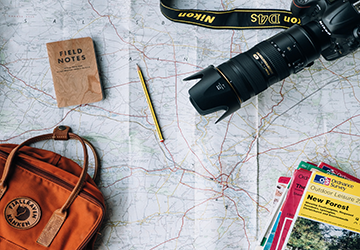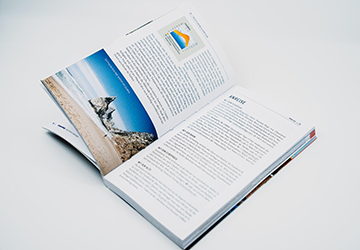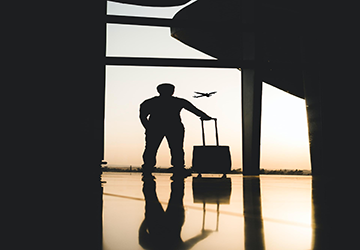When you find yourself in a foreign city where the language is unfamiliar, navigating the surroundings can be a challenge. In these circumstances, you must rely on alternative methods to explore the unfamiliar city like a local.
Here are 6 highly recommended tips for overcoming language barriers before exploring like a pro.
1. You Should Research and Prepare Before Your Trip
1.1 Learn Basic Phrases and Words:

Learning essential terms and phrases early on can help you utilize the language more quickly and effectively. It can also encourage you to continue learning and communicate more clearly. These phrases and words can serve as a basis for the rest of your language training because many of them are fairly common.
Take your time when communicating, even if you are under time constraints. Rushing can lead to misunderstandings and miscommunication, which can take longer to resolve.
1.2 Practice Your Pronunciation and Intonation;
Concentrating on individual sounds is the initial stage in mastering proper pronunciation. Putting more emphasis on accent and intonation can help improve your pronunciation. Focusing on correctly speaking only the "stressed" words can dramatically improve your pronunciation.
Utilizing tools like language learning apps can help hone your pronunciation abilities by enhancing the stress-timed aspect of your speech when speaking whole phrases. Intonation is the way the vocal ascends and descends when speaking or the "song of the language," and it has less to do with what we say than how we say it.
1.3 Seek Out Best Language Classes and Tutors:
Working with a linguistic tutor can be similar to working with a teacher in school. You complete the assignment, and the tutor provides feedback on how well you did it. Even if this relationship isn't the most comfortable, it makes it easier to share questions, comments, and helpful criticism than it would be in a cordial language discussion. Because of their knowledge, language instructors can be more successful in assisting you in developing your language abilities.
2. Utilize Technology to Your Advantage
Learning a new language in a convenient method is now a lot simpler thanks to language learning technology. They are available to you at all times, and you can even bring them with you when you're on the go.
2.1 Make Use of Language Translation Apps:
Language learning technology can make learning a new language a lot simpler and more convenient. They are available to you at all times, and you can even bring them with you when you're on the go.
Students can more readily attain their language goals since they are not constrained by conventional criteria like classroom time or the requirement to advance at the same pace as the class as a whole. Text inspectors, podcasts, films, and other technological resources can assist and enhance the whole experience of learning a language.
2.2 Download Maps and Transportation Information:

One of the most efficient strategies to get through the difficulty is grasping the fundamentals of the map. The native tongue of the country will be used to express your location, your destination, and your method of transportation. You might hear several subtitles of train stations if you're in a big city. Nonetheless, it becomes less likely to hear any well-known words the further you travel from the city.
3. Build Connections with Locals:
Locals typically enjoy assisting visitors who are trying to learn their language. It's an enjoyable way to develop relationships. Regardless of how faint your accent is or how much you still have to learn, the locals will respect your effort. Learning the local language will make it easier for you to get by and manage daily life there.
3.1 Ask for Help from Locals and Authorities:
You are more likely to receive help if you ask for it. When you're lost, people are usually happy to help you find your way, order the meal you want, or make new acquaintances. They will always be available to you if they realize that you're genuinely trying to understand their language. They might even offer to buy you a drink. Using this software to navigate a new city has given me the opportunity to explore all of its nooks and crannies, link its various streets, and use its public transportation without worrying about how I'm going to get home.
3.2 Take a Guided Tour
Local tour guides can be helpful as they share many legends and myths about historical locations. You can make friends with thousands of people worldwide as a native speaker of another country's local dialect. Your ability to communicate with people around the world will increase as your proficiency in the language grows. Don't miss out on this opportunity to get out and pick up the local tongue as an active and knowledgeable traveler!
3.3 Be Respectful of Local Customs and Etiquette:
By learning the origins of a country's language, you can identify its priorities. At that point, you begin to understand the culture. A culture can be learned through reading, listening, and thinking, but speaking the language of that culture is the best way to truly understand it.
4. Stay Alert and Stay Safe:
Thieves roam in the shadows of many major cities throughout the world and have a variety of travel scams at their disposal to steal your money.
4.1 Be Aware of Your Surroundings:

Confusion among tourists, drunken carelessness, and excessively concerned first-timers who grip their belongings to protect them can make them easier targets for travel scams. In other words, if you are a confident, knowledgeable, and, above all, sober tourist, scammers will likely move on to an easier target.
4.2 Avoid Common Tourist Scams:
Tourists should be mindful of the various taxi driver frauds they can encounter before taking a cab. The most common stories concern cab drivers who charge high rates while claiming that the meter is broken or about meters that run quickly and tally up a large fare.
4.3 Plan Ahead and Stay Organized:
A language student helps you take charge of your time so you can organize and complete the tasks required to accomplish your goals. Create to-do lists for key tasks on a daily, weekly, and monthly basis using proactive planning. At the start of each day, review your daily priorities and schedule to effectively meet your goals. Prioritize your tasks and keep the most important ones close at hand.
4.4 Prepare for Transportation, Accommodation, and Sightseeing:
Booking tickets well in advance for your airline, train, or bus transfer is a crucial step in understanding how to organize your vacation effectively. Making reservations weeks or months ahead of time can help you stay within your initial budget. Train and airplane ticket prices can increase over time, and packages depend on availability.
When you arrive at the airport, you may feel exhausted and overwhelmed. Knowing that your transportation and lodging are prearranged can ease your worries and ensure your safety for the first 24 hours in the country. Information about the location you are planning to visit is crucial. Get a few books about living in the area where you're going by visiting the library or bookstore.
4.5 Keep Essential Items with You:
The best way to carry a backpack is to minimize space if you want to keep vital items close at hand. The best advice is to pack your clothing properly. Remember to pack heavy items at the bottom, put leaky items in plastic bags, and place things you'll need immediately after arriving, such as toiletries, at the top. If folding takes up too much space, try rolling your garments instead.
6. Embrace the Experience:
I urge you to be aware that quitting your comfort zone to move to a new country and learn a new language comes with numerous obstacles.
6.1 Step outside Your Comfort Zone:

The failure to push oneself to apply the language one is learning in practical contexts is a common error made by learners. Strive to interact with non-native speakers of your language as much as you can. You'll be compelled to practice outside the classroom in this manner.
If there are no native speakers nearby, attend satisfying linguistic exchanges, or look for online chat partners. It won't be simple at first; you can have self-consciousness and worry about others' opinions when visitors make a mistake. However, you should take into account that learning is a journey, and you are improving every day. Simply step outside your comfort zone to experience growth.
6.2 Embrace Cultural Differences and Open-Mindedness:
It's likely that you'll want to keep adding words to your vocabulary after you've arrived and practiced the "please," "thank you," and "excuse me" you learned at home in order to feel more at ease in the intercultural environment that is all around you.
Conclusion:
Learning a language is an incredibly rewarding experience that opens up new worlds and cultures to explore. It's a journey that requires patience, dedication, and a willingness to step outside your comfort zone. But trust us, it's worth it.
By immersing yourself in a diverse, multicultural environment and embracing new experiences, you'll discover a wealth of inspiration, creativity, and success you never knew existed. Yes, there may be occasional language obstacles, but don't let that deter you from achieving your goals.
Remember, every single day, you can improve and make progress toward your language learning objectives. So, don't get bogged down in focusing solely on your end goals. Instead, focus on the present moment and what you can do now to achieve those goals.
Embrace the journey, embrace the experience, and don't let language hurdles get in the way of your success. With the right mindset and approach, you'll be amazed at how quickly you can progress and how much you can accomplish.